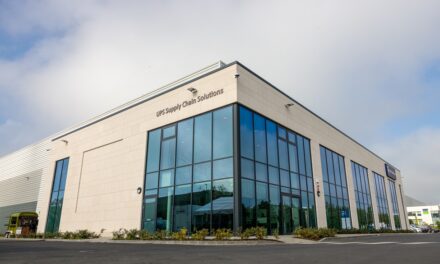
TNT to embrace more of eastern Europe and serve extra airports
A three-year expansion plan will see TNT covering seven more countries in eastern Europe and serving 12 additional airports.
In a rare media briefing in London, Alan Jones, group MD of TNT Express, said: “We want to build on our strengths in Europe and grow in the rest of the world.” The integrator now has 500 depots in 31 countries, deploys its own aircraft at 55 airports and uses commercial lift elsewhere, enabling it to offer service to 208 countries.
Later average departure times from most airports meant good cut-off times for customers, Jones said, and in some cases – he quoted Milan’s Linate airport and Tegel at Berlin – TNT was the only freight carrier in key central locations.
The company phased out its last B727s last month and now boasts all stage 3 aircraft and some stage 4 – giving it the only totally noise-compliant fleet among the integrators, he claimed.
The company will charter in more aircraft and expand its Arnhem road hub to cope with additional volumes.
Jones said TNT had quadrupled its profits since 1999, when he took over. “The company was in trouble, ” he admitted. “The return on sales was 1.3%. Now it’s nearly 4% and our target for this year is 5%.” He said that figure would be 6% if it were not for the lossmaking Australia/Asia region.
Businesses there had been integrated badly, but would break even on a weekly basis by the end of this year, he pledged.
Meanwhile the UK was the most profitable business unit.
TNT had set out its aim in 1999 of becoming the fastest and most reliable operator and its performance had improved both by its own internal measures and in independent transit tests, Jones said.
Starting to clear goods while in transit was just one of more than 120 ways in which the company was looking to streamline. “We have become more efficient by extracting time from our processes, ” he said.
Resisting the temptations of the dotcom boom, TNT had “resolved that we want to be a business-to-business carrier”, Jones affirmed. “Business parcels have always been our staple diet. It was easy to get carried away during dotcom, but looking for residential addresses, and someone to deliver to, delays the business parcels. By focusing on that, I believe we can outperform the opposition.”













